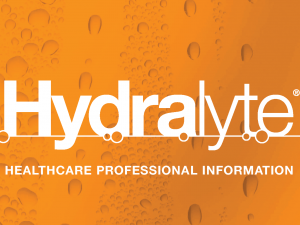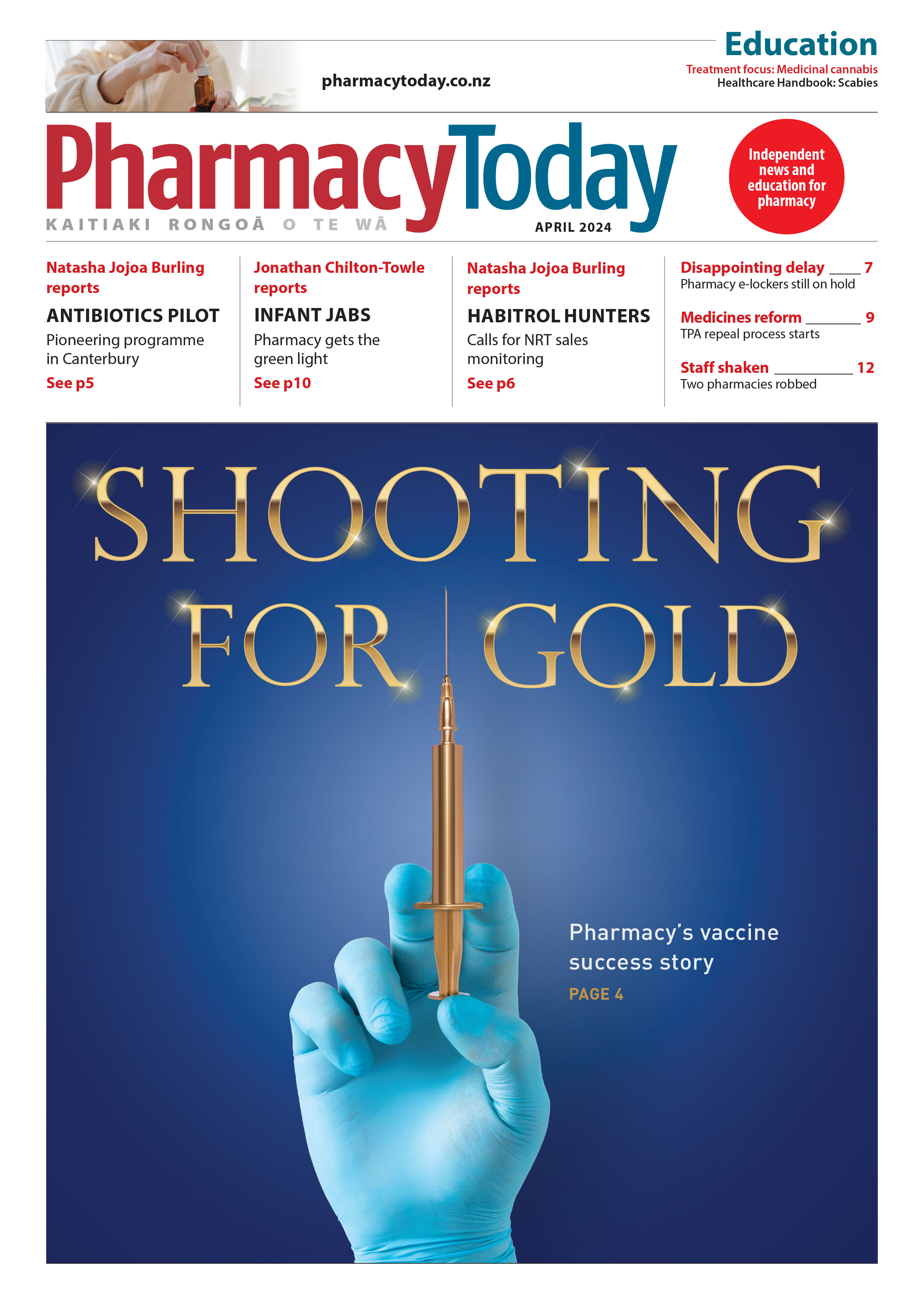In this article, Sue Frankland looks at the global problem of wastage of medications, including causes such as overprescribing and non-adherence. She also presents information from her master’s dissertation on how people understand, and respond to, medication expiration dates
Pharmac funds new treatment option for New Zealanders living with painful inflammatory skin condition
Pharmac funds new treatment option for New Zealanders living with painful inflammatory skin condition

- HUMIRA® (adalimumab,) is now funded by PHARMAC to treat moderate to severe Hidradenitis suppurativa (HS.)1
- Hidradenitis suppurativa (HS) is a painful, debilitating, chronic inflammatory skin disease estimated to affect 1 - 4 percent of the world's population.2,3
AbbVie (NYSE: ABBV) New Zealand today announced that HUMIRA® (adalimumab) is now available and funded to New Zealanders by PHARMAC to treat moderate to severe hidradenitis suppurativa (HS), a painful, debilitating, chronic skin condition.1
Impacting approximately one to four percent of adults worldwide, with an average age of onset around 21, moderate to severe HS can be disabling and disfiguring, often causing deep tunnelling, boil-like wounds that ooze pus and cord-like scarring that cannot be reversed without a surgical procedure.4
HS is not an infectious or contagious disease. It is marked by debilitating symptoms such as recurrent and painful abscesses and nodules on the skin – typically in areas of the armpits, groin, buttocks and breasts.2,3 HS can have a considerable impact on patients' daily lives, their work ability, physical activities and emotional state. The sensitive nature of the disease often results in feelings of embarrassment and isolation.4
Andrew Tompkin, General Manager AbbVie New Zealand welcomed PHARMAC’s funding of HUMIRA for hidradenitis suppurativa.
“HS is a distressing disease and can have a severe impact on a patient’s quality of life. With the funding access of HUMIRA for HS, the addition of another treatment option for people living with this condition is very important for patients,” Andrew said.
HS is often mistaken for an infection therefore delay in correct diagnosis is not uncommon.2 Early identification of HS is crucial, as early referral to a dermatologist for appropriate treatment could help prevent irreversible skin damage. It can take up to seven years on average to diagnose HS due to misdiagnosis and referral to different specialists, often leaving both patients and doctors frustrated.5
To find out more about HS, please talk to your doctor and ask if it is appropriate to see a Dermatologist.
Humira is used for the treatment of active moderate to severe hidradenitis suppurativa in adults and adolescents from 12 years of age with an inadequate response to other HS therapy. For further information regarding appropriate use and dosing information, please refer to your doctor or pharmacist. 6
All medicines have adverse effects and may impact different people in different ways. The most common side effects of HUMIRA are injection site reactions (e.g. pain, swelling, redness etc), respiratory tract infections, headache, dizziness, tiredness, mouth ulcers, tummy pain, nausea, vomiting, diarrhoea, rash, itching, muscle pain and infections caused by viruses, bacteria or fungi, as well as abnormal laboratory tests such as reduced blood cell count, increased liver test results, increased blood lipid test results, etc.6 Refer to the Consumer Medicines Information or your doctor or pharmacist for further information about HUMIRA.
PHARMAC Pharmaceutical Schedule: Humira is subsidised under Special Authority for the treatment of patients with moderate to severe Hidradenitis suppurativa.1 Normal pharmacy prescription charges apply. Normal doctor’s charges apply.
IMPORTANT INFORMATION ABOUT HUMIRA
HUMIRA is a prescription medicine containing adalimumab. HUMIRA is available as a single use pre-filled syringe (containing 20mg or 40mg adalimumab) or single-use pre-filled pen (containing 40mg adalimumab). It is used in the treatment of patients with rheumatoid arthritis, polyarticular juvenile idiopathic arthritis, enthesitis-related arthritis, psoriatic arthritis, ankylosing spondylitis, non-radiographic axial spondyloarthritis, chronic plaque psoriasis, ulcerative colitis, Crohn’s disease, non-infectious uveitis, and hidradenitis suppurativa. HUMIRA is only used in patients of a specific age group, in diseases of certain severity (e.g. moderate to severe), and/or after some other treatments have been tried (e.g. conventional therapy).
HUMIRA has risks and benefits. Do not use Humira if you have: an allergy to any medicines containing adalimumab or any of the other ingredients in HUMIRA; a severe infection; tuberculosis (TB); moderate to severe heart failure; or are using a medicine containing anakinra (Kineret®) or abatacept (Orencia®). Before you use HUMIRA tell your doctor if you have: a current infection or a history of recurring infections (including TB, hepatitis B, fungal or any other infection); any conditions that increase the risk of infections; had close contact with someone with TB; a nervous system disease (such as multiple sclerosis); blood disorders; low resistance to disease; heart conditions; cancer; autoimmune disease; lung disease; uveitis (an eye problem); kidney or liver problems; psoriasis and have undergone phototherapy; or if you have any allergies. Your risk of getting serious infections or certain kinds of cancer may increase if you take HUMIRA. In rare cases these infections may be life-threatening. Tell your doctor if you are pregnant or plan to become pregnant or if you are breastfeeding or plan to breastfeed. Tell your doctor right away: if symptoms of TB or any other infection appear during treatment (such as fever, cough, feeling tired, wounds etc); if you develop cancer, skin lesions, or if existing lesions change appearance; if you develop symptoms of an allergy (such as chest tightness, swelling, rash, shortness of breath), heart problems (shortness of breath, swollen feet), blood disorders (bruising, bleeding, paleness), nervous system disorders such as multiple sclerosis (numbness, tingling, muscle weakness) or if you become pregnant while using HUMIRA. If you use HUMIRA during pregnancy, your baby may have a higher risk of getting an infection. It is important that you tell your baby's doctors and other healthcare professionals about your HUMIRA use during your pregnancy before the baby receives any vaccine. Tell your doctor: if you are taking any other medicines, including any that you get without a prescription; if you are going to have surgery, or if you are scheduled for any vaccines. Patients taking HUMIRA should not receive live vaccines. Tell all doctors, dentists, and pharmacists who are treating you that you are using HUMIRA. Side Effects: Tell your doctor if you experience any side effects that make you feel unwell. The most common side effects of HUMIRA are injection site reactions (e.g. pain, swelling, redness etc), respiratory tract infections, headache, dizziness, tiredness, mouth ulcers, tummy pain, nausea, vomiting, diarrhoea, rash, itching, muscle pain and infections caused by viruses, bacteria or fungi, as well as abnormal laboratory tests such as reduced blood cell count, increased liver test results, increased blood lipid test results, etc.6
If you have any questions about using Humira, including the risks and benefits, how much to use, how and when to use it, or the storage conditions, ask your healthcare professional and refer to the Consumer Medicine Information (CMI) available from www.HUMIRA.co.nz or phone free on 0800 900 030. Ask your doctor if HUMIRA is right for you. Use strictly as directed. If symptoms continue, or you have side effects, see your doctor, pharmacist or healthcare professional.
- PHARMAC notification. Accessed 11/09/2019
- Jemec G. Hidradenitis Suppurativa. N Engl J Med. 2012; 366:158-164.
- Dufour DN, Emtestam L, Jemec GB. Hidradenitis Suppurativa: A Common and Burdensome, Yet Under-Recognised, Inflammatory Skin Disease. Postgrad Med J. 2014; 90 (1062):216-21.
- Collier F, Smith RC, Morton CA. Diagnosis and management of hidradenitis suppurativa. BMJ. 2013;346:f2121. doi:10.1136/bmj.f2121.
- Poli F.Jemec GBE. Revuz J. Clinical presentation. In:Jemec GBE, Revuz J. Leyden JJ, eds. Hidradenitis Suppurativa. Heidelberg: Springer-Verlag: 2206:11-24
- HUMIRA Approved Consumer Medicines Information





